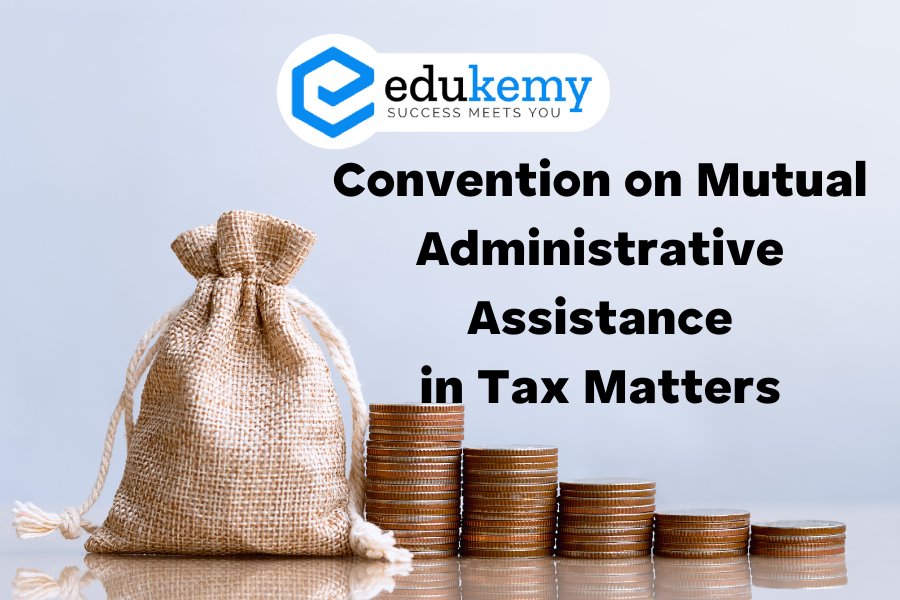
The Convention on Mutual Administrative Assistance in Tax Matters stands as a pivotal international agreement facilitating cooperation among nations in the realm of taxation. Ratified by numerous countries worldwide, this convention serves as a cornerstone for combating tax evasion and fostering transparency in global financial transactions. Enabling jurisdictions to exchange information and provide assistance in tax enforcement, it embodies a collective effort towards ensuring fairness, integrity, and effectiveness in the administration of taxation laws across borders. With its comprehensive framework and widespread adoption, the convention represents a significant step towards harmonizing international tax practices and promoting economic stability on a global scale.
Contents
- 1 Convention on Mutual Administrative Assistance in Tax Matters:
- 2 FAQs
- 2.1 1. What is the Convention on Mutual Administrative Assistance in Tax Matters (CMAAT)?
- 2.2 2. How does the CMAAT facilitate international tax cooperation?
- 2.3 3. Which countries are parties to the CMAAT?
- 2.4 4. What are the key provisions of the CMAAT?
- 2.5 5. How does the CMAAT benefit taxpayers and governments?
- 3 In case you still have your doubts, contact us on 9811333901.
Convention on Mutual Administrative Assistance in Tax Matters:
- Development and Collaboration:
- The Convention on Mutual Administrative Assistance in Tax Matters was jointly developed by the Organization for Economic Co-operation and Development (OECD) and the Council of Europe.
- Comprehensive Multilateral Instrument:
- The Convention stands as one of the most comprehensive multilateral instruments available for all forms of tax cooperation.
- It addresses issues related to tax evasion and avoidance.
- Facilitation of Bilateral Agreements:
- The Convention facilitates the entrance into bilateral tax information exchange agreements between state parties that are members of the Convention.
- Global Participation:
- G20 (Group of Twenty) countries, including India, express favor towards the Convention.
- As of a certain point, approximately 126 countries and parties, spanning all G20 countries, all BRICS nations, all OECD countries, and an increasing number of developing countries, have joined the Convention.
- Benefits and Significance:
- The Convention enhances global cooperation in tax matters and creates a framework for effective information exchange, contributing to the global fight against tax evasion and illicit financial activities.
India’s participation in the Convention reflects its commitment to international efforts aimed at ensuring fair and transparent tax practices across borders.
FAQs
1. What is the Convention on Mutual Administrative Assistance in Tax Matters (CMAAT)?
- The Convention on Mutual Administrative Assistance in Tax Matters is a multilateral agreement aimed at promoting international cooperation and combatting tax evasion and avoidance. It provides a framework for countries to exchange information and assist each other in tax matters.
2. How does the CMAAT facilitate international tax cooperation?
- The CMAAT facilitates international tax cooperation by enabling participating countries to exchange information on taxpayers, including bank account details, income, and assets held abroad. This exchange of information helps countries enforce their tax laws more effectively and combat tax evasion.
3. Which countries are parties to the CMAAT?
- As of [latest update], over 140 jurisdictions are parties to the CMAAT, including both developed and developing countries. The Convention is open to all countries and jurisdictions that are members of the Council of Europe or the Organisation for Economic Co-operation and Development (OECD), as well as other interested jurisdictions.
4. What are the key provisions of the CMAAT?
- The key provisions of the CMAAT include the exchange of information on request, automatic exchange of information, assistance in tax collection, simultaneous tax examinations, and assistance in recovery of tax claims. These provisions ensure that countries can collaborate effectively to tackle tax evasion and ensure compliance with tax laws.
5. How does the CMAAT benefit taxpayers and governments?
- For taxpayers, the CMAAT helps ensure fairness and transparency in the tax system by reducing opportunities for tax evasion and avoidance. For governments, it enhances their ability to enforce tax laws, recover unpaid taxes, and combat cross-border tax evasion, ultimately strengthening revenue collection and promoting fiscal integrity.
In case you still have your doubts, contact us on 9811333901.
For UPSC Prelims Resources, Click here
For Daily Updates and Study Material:
Join our Telegram Channel – Edukemy for IAS
- 1. Learn through Videos – here
- 2. Be Exam Ready by Practicing Daily MCQs – here
- 3. Daily Newsletter – Get all your Current Affairs Covered – here
- 4. Mains Answer Writing Practice – here

